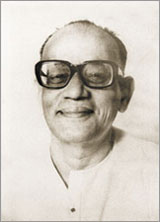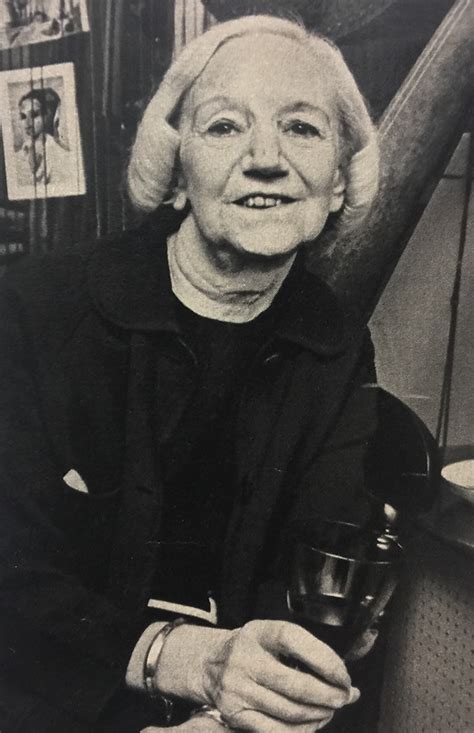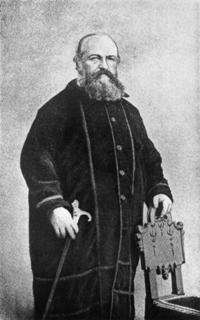A Quote by Isaac Newton
. . . Newton was an unquestioning believer in an all-wise creator of the universe, and in his own inability - like the boy on the seashore - to fathom the entire ocean in all its depths. He therefore believed that there were not only many things in heaven beyond his philosophy, but plenty on earth as well, and he made it his business to understand for himself what the majority of intelligent men of his time accepted without dispute (to them it was as natural as common sense) - the traditional account of the creation.
Quote Topics
Accepted
Account
Believed
Believer
Beyond
Boy
Business
Common
Common Sense
Creation
Creator
Depths
Dispute
Earth
Entire
Fathom
Heaven
Himself
His
Inability
Intelligent
Like
Made
Made It
Majority
Many
Men
Natural
Newton
Ocean
Only
Own
Philosophy
Plenty
Seashore
Sense
Them
Therefore
Things
Time
Traditional
Understand
Universe
Well
Were
Wise
Without
Related Quotes
He who is himself crossed in love is able from time to time to master his passion, for he is not the creature but the creator of his own misery; and if a lover is unable to control his passion, he at least knows that he is himself to blame for his sufferings. But he who is loved without reciprocating that love is lost beyond redemption, for it is not in his power to set a limit to that other's passion, to keep it within bounds, and the strongest will is reduced to impotence in the face of another's desire.
I like my boy with his endless sweet soliloquies and iterations and his utter inability to conceive why I should not leave all my nonsense, business, and writing and come to tie up his toy horse, as if there was or could be any end to nature beyond his horse. And he is wiser than we when [he] threatens his whole threat "I will not love you."
According to the legend an evil old doctor, who called himself God and us dogs, created the first boy in his adolescent image. The boy peopled the garden with male phantoms that rose from his ejaculations. This angered God, who was getting on in years. He decided it endangered his position as CREATOR. So he crept upon the boy and anaesthetized him and made Eve from his rib. Henceforth all creation of beings would process through female channels. But some of Adam's phantoms refused to let God near them under any pretext.
The freedom of an individual depends upon that individual's freedom to alter his considerations of space, energy, time and life and his roles in it. If he cannot change his mind about these, he is then fixed and enslaved amidst barriers such as those of the physical universe, and barriers of his own creation. Man thus is seen to be enslaved by barriers of his own creation. He creates these barriers himself, or by agreeing with things which hold these barriers to be actual.
God has sovereignly pulled back the curtain on His glory. He has disclosed Himself on the platform of both creation and redemption that we might stand awestruck in His presence, beholding the sweet symmetry of His attributes, pondering the unfathomable depths of His greatness, baffled by the wisdom of His deeds and the limitless extent of His goodness. This is His beauty.
Patriotism, or the peculiar relation of an individual to his country, is like the family instinct. In the child it is a blind devotion; in the man in intelligent love. The patriot perceives the claim made upon his country by the circumstances and time of her growth and power, and how God is to be served by using those opportunities of helping mankind. Therefore his country's honor is dear to him as his own, and he would as soon lie and steal himself as assist or excuse his country in a crime.
Sinning persons are just like this boy who fell into the drain. Now, high or low, upgraded or degraded, all are equal. All are equal for Him because heaven is His creation, hell is His creation. If we say the Supreme is only in heaven, it will not be a correct utterance, because He is in hell also. His sons, His daughters, are never alone, He is with you even in hell.
When the father dies, he writes, the son becomes his own father and his own son. He looks at is son and sees himself in the face of the boy. He imagines what the boy sees when he looks at him and finds himself becoming his own father. Inexplicably, he is moved by this. It is not just the sight of the boy that moves him, not even the thought of standing inside his father, but what he sees in the boy of his own vanished past. It is a nostalgia for his own life that he feels, perhaps, a memory of his own boyhood as a son to his father.
A Christian, who realizes he has been made in the image of the Creator God and is therefore meant to be creative on a finite level, should certainly have more understanding of his responsibility to treat God's creation with sensitivity, and should develop his talents to do something to beautify his little spot on the earth's surface.
The man has a curious inborn conviction of his own superiority which is quite unshakeable. All his life he has bullied and browbeaten those around him by his high-and-mightiness and his atrocious temper. As a boy he terrorized his entire family by his tantrums, when, if thwarted, he would throw himself on the floor and yell till he went blue in the face. It has been much the same ever since. Everyone's terrified of his rages. He has only to start grinding his teeth, and people fall flat before him.
[Man] is the only animal who lives outside of himself, whose drive is in external things—property, houses, money, concepts of power. He lives in his cities and his factories, in his business and job and art. But having projected himself into these external complexities, he is them. His house, his automobile are a part of him and a large part of him. This is beautifully demonstrated by a thing doctors know—that when a man loses his possessions a very common result is sexual impotence.
That’s how Ptolemy imagined the disposition of his memories, his thoughts: they were still his, still in the range of his thinking, but they were, many and most of them, locked on the other side a closed door that he’s lost the key for. So his memory became like secrets held away from his own mind. But these secrets were noisy things; they babbled and muttered behind the door, and so if he listened closely he might catch a snatch of something he once knew well.
Whoever is wise is apt to suspect and be diffident of himself, and upon that account is willing to "hearken unto counsel"; whereas the foolish man, being in proportion to his folly full of himself, and swallowed up in conceit, will seldom take any counsel but his own, and for that very reason, because it is his own.
The fact that labour is external to the worker, i.e., it does not belong to his intrinsic nature; that in his work, therefore he does not affirm himself but denies himself, does not feel content but unhappy, does not develop freely his physical and mental energy but mortifies his body and his mind. The worker therefore only feels himself outside his work, and in his work feels outside himself.








































